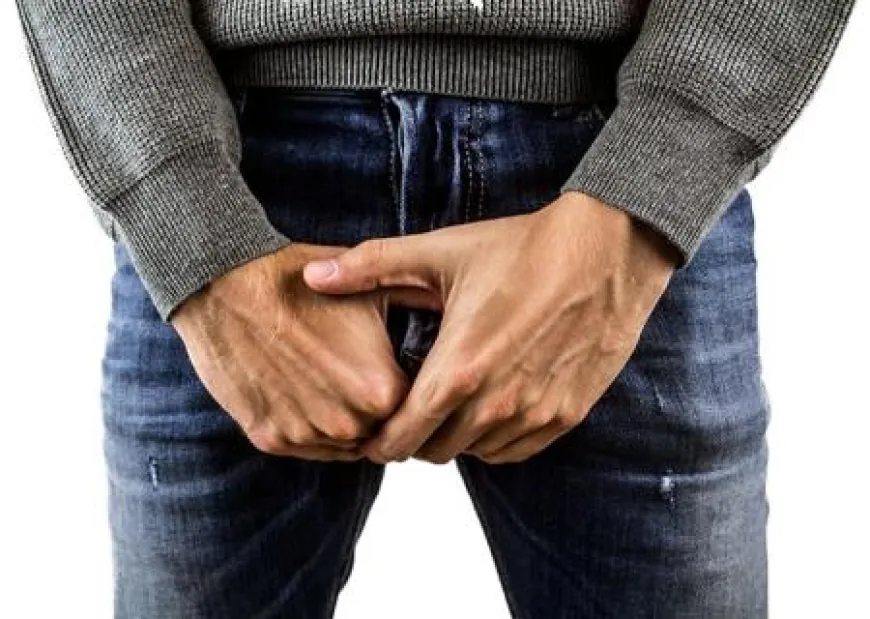Rejuvenate Your Intimacy: Peyronie's Therapy

Intimacy is a vital aspect of human relationships, playing a crucial role in emotional connections and overall well-being. However, conditions such as Peyronie's disease can create significant barriers to a fulfilling sexual experience. Peyronie's disease is characterized by the development of fibrous scar tissue in the penis, leading to curved, painful erections. This condition can profoundly impact self-esteem and relationships, making effective treatment essential. In Dubai, innovative therapies are available to address Peyronie's Disease Treatment in Dubai, helping individuals reclaim their intimacy and enhance their quality of life.
Understanding Peyronie's Disease
Peyronie's disease is a condition that affects men, typically between the ages of 40 and 70, although it can occur at any age. It is characterized by the formation of plaques or scar tissue within the tunica albuginea, the tissue surrounding the erectile chambers of the penis. This scar tissue can cause curvature, pain, and, in some cases, erectile dysfunction. The exact cause of Peyronie's disease is not fully understood, but it is believed to result from a combination of genetic predisposition, trauma, and certain health conditions such as diabetes or Dupuytren's contracture.
The symptoms of Peyronie's disease can vary significantly among individuals. Some men may experience only a slight curve, while others may face severe bending, making sexual intercourse difficult or impossible. The emotional toll can be equally challenging, as many men report feelings of embarrassment, anxiety, and depression related to their condition. As awareness of Peyronie's disease grows, so too does the importance of effective treatment options available in Dubai.
Peyronie's Therapy: A Range of Options
When it comes to treating Peyronie's disease, several therapeutic options are available in Dubai. The choice of treatment often depends on the severity of the condition, the duration of symptoms, and the patient's overall health. Here are some of the most common therapies:
1. Medications
Medications can play a crucial role in the initial treatment of Peyronie's disease. Oral medications such as pentoxifylline and collagenase clostridium histolyticum have shown promise in reducing plaque size and curvature. These medications can be effective in the early stages of the disease, especially when the curvature is mild to moderate. Consulting with a qualified healthcare provider can help determine the most suitable medication for individual cases.
2. Vacuum Erection Devices (VEDs)
Vacuum erection devices are non-invasive options that can aid in achieving and maintaining erections. These devices create a vacuum around the penis, promoting blood flow and helping to elongate the organ. While they may not directly address the curvature caused by Peyronie's disease, they can improve erectile function and overall sexual satisfaction.
3. Injection Therapies
For more advanced cases, injection therapies can be an effective treatment option. In this approach, medications are injected directly into the plaque to help break down the scar tissue and reduce curvature. This minimally invasive procedure is typically performed in a clinical setting and can yield positive results for many patients.
4. Surgery
In cases where other treatments are ineffective, surgical options may be considered. Surgical intervention aims to correct the curvature and restore sexual function. The specific type of surgery depends on the degree of curvature and the patient’s individual circumstances. Surgical options may include plaque excision, penile plication, or grafting. A thorough discussion with a urologist specializing in Peyronie's disease is essential to weigh the benefits and risks of surgical intervention.
5. Shockwave Therapy
Emerging treatments, such as shockwave therapy, are gaining attention for their potential in treating Peyronie's disease. This non-invasive therapy uses acoustic waves to stimulate healing and promote blood flow to the affected area. While research is ongoing, initial studies have shown promise in reducing curvature and improving erectile function for some patients.
Choosing the Right Treatment in Dubai
When seeking treatment for Peyronie's disease in Dubai, it is essential to consult with qualified healthcare professionals specializing in urology and sexual health. They can conduct a thorough evaluation, assess the severity of the condition, and recommend the most appropriate treatment plan tailored to individual needs.
In Dubai, many healthcare facilities offer state-of-the-art diagnostic tools and treatment options for Peyronie's disease. Patients can benefit from personalized care and access to the latest advancements in medical technology, enhancing their chances of a successful outcome.
The Impact of Peyronie's Disease on Relationships
Peyronie's disease can significantly affect not only the individual but also their partner and overall relationship dynamics. Open communication between partners is crucial in navigating the emotional challenges associated with this condition. Couples may benefit from therapy or counseling to address the psychological impacts of Peyronie's disease, fostering a supportive environment that enhances intimacy and connection.
Conclusion
Rejuvenating intimacy after a Peyronie's disease diagnosis is possible through various effective treatment options available in Dubai. From medications to advanced therapies and surgical interventions, individuals can find a tailored solution to their specific needs. By seeking professional guidance and exploring these options, men can reclaim their sexual health, improve their quality of life, and strengthen their relationships. With the right support and treatment, overcoming the challenges posed by Peyronie's disease can lead to renewed intimacy and deeper connections.
Tags:
What's Your Reaction?
 Like
0
Like
0
 Dislike
0
Dislike
0
 Love
0
Love
0
 Funny
0
Funny
0
 Angry
0
Angry
0
 Sad
0
Sad
0
 Wow
0
Wow
0


















































